Program Director
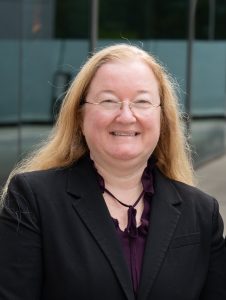
Jacqueline A. Hobbs, MD, PhD, DFAPA, CMQ
Program Director
Medical School: Indiana University School of Medicine
Residency: Mount Sinai School of Medicine, Indiana University School of Medicine, University of Florida College of Medicine
Graduate/Post-Doctoral Fellowship: Indiana University School of Medicine
I joined the University of Washington Psychiatry Residency Program in June 2023. I am very excited to be here! I am really enjoying Seattle and the surrounding area. I have over 15 years of experience as a program director. I love graduate medical education and working with residents. My clinical areas of interest are quality improvement/patient safety and perinatal mental health. I am always open to working with residents on scholarly projects. Feel free to stop by and bounce around some ideas. In my free time I like to travel, take walks, watch movies or my favorite TV series, play with my dogs, get my nails done, shop, and check out new restaurants.
Vice Chair for Education
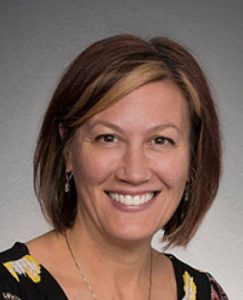
Vice Chair for Education
Medical School: University of Washington School of Medicine
Residency: University of Washington
Early in my training it became clear that intense pathology transfixed me so inpatient psychiatry was a natural fit. My specific area of expertise within psychiatry is care of the acutely ill hospitalized psychiatric patient. I have also developed clinical expertise in the diagnosis and management of Catatonia. In addition to clinical care, education is another area of interest. I love to teach and it has been the focus of my career. I am intimately involved in the education of psychiatry residents and am a founding faculty member of the Clinician-Teacher Pathway for our residency program. In addition to teaching medical students and residents, I regularly educate primary care providers on detection and treatment of psychiatric illnesses in primary settings. I assumed the role of Vice Chair of Education in 2020 and in that role I oversee all educational efforts for our department.
Associate Program Directors
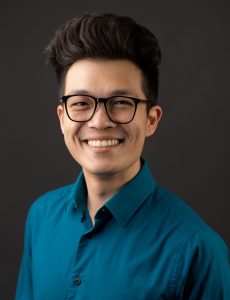
James Lee, MD
APD for R1s and Wellness/EDI
Medical School: Mayo Clinic Alix School of Medicine
Residency: University of Washington
Fellowship: Consultation-Liaison, University of Washington
As a recent graduate from UW’s residency and C/L fellowship, I’m honored to join the faculty as the APD overseeing the R1 experience. The first year of residency can be tumultuous, vacillating between anxiety and excitement for this sizable next step in physicianhood. I aim to cultivate a supportive environment for our newest residents, guiding them through the ups and downs of training and emphasizing the importance of community and connection with others. I am also the designated APD for residency-wide Wellness and DEI initiatives, collaborating with residents and staff to ensure that everyone feels welcome and cared for. Outside of my administrative duties, I work as an inpatient psychiatrist at Harborview, a job that melds my interests in public psychiatry and medical education. Outside of psychiatry, I love pursuing the arts as an actor, musician, and writer in the Seattle community, and I do treasure a board game night. Working with trainees is the highlight of my work, and I look forward to supporting you through residency and beyond!
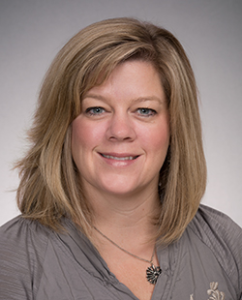
APD for R2s and QIPS
Medical School: Temple University School of Medicine
Residency: University of Washington
Fellowship: Geriatric Psychiatry Fellowship, University of Washington
My passion for patient care is at the heart of my identity as a physician. As a consultation-liaison (C-L) psychiatrist, I am privileged to work at the intersection of psychiatry and general medicine, where I engage in rich, interdisciplinary teaching and collaboration. This role allows me to educate non-psychiatric clinicians, trainees from various specialties, and professionals across disciplines—helping them better understand psychiatric conditions, their interplay with medical illnesses, and the path to recovery.
I am especially committed to supporting patients and their families as they navigate the complexities of the healthcare system, often during their most vulnerable moments. My work is grounded in empathy, communication, and a deep respect for the human experience of illness.
Education is the common thread that weaves through all my academic endeavors. Since the beginning of my tenure, I have been actively involved in curriculum development and the training of medical students, residents, and fellows. I served as Associate Program Director at the University of Washington Medical Center for 13 years and led the Adult Psychiatry Residency Program as Program Director for 5 years. Currently, I serve as the Medical Director of C-L Psychiatry at the VA Puget Sound Health Care System.
Since 2020, I have also held the role of Associate Program Director for our residency program, with a focus on evaluation. Beginning in 2025, I will expand my leadership as a Core APD for the R2 class, with a special emphasis on quality improvement and patient safety. Through all these roles, I remain dedicated to fostering the next generation of compassionate, skilled, and thoughtful psychiatrists.
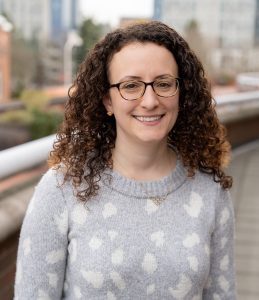
APD for R3s and Psychotherapy
Medical School: Johns Hopkins University
Residency: University of Washington
I’ve been a part of the residency leadership team since 2019. My favorite part of my job is supporting and mentoring residents. Residents can pop by my office at the Outpatient Psychiatry Clinic, meet me at CBHL, or ask for a zoom meeting any time! I oversee our residency’s psychotherapy curriculum and Psychotherapy Pathway. I am most passionate about teaching supportive psychotherapy skills to residents that can be used in any clinical setting where they end up practicing. I am delighted to support the R3 class as they transition into the outpatient world. I am on the Antiracism Committee and try to incorporate EDI initiatives into all aspects of the residency program. Clinically my areas of interest are psychotherapy, general outpatient psychiatry, and perinatal psychiatry.

APD for R4s and Career/Track Development
Medical School: University of Utah School of Medicine
Residency: Duke University
Fellowship: Addiction Psychiatry, University of Washington
I’m thrilled to serve as the Associate Program Director for our R4 class and to lead residency career and track development. I have the privilege of helping residents explore career paths that align with their strengths, values, and long-term goals. The final year of residency is a dynamic—and sometimes dizzying—time, as you bridge the transition from training to independent practice. Whether you’re refining your goals, navigating a difficult decision, or simply looking to brainstorm, I’m always happy to talk things through. Mentorship is truly one of the most rewarding parts of my role.
Clinically, I practice outpatient general psychiatry at the VA Puget Sound Medical Center, where I also specialize in neuromodulation. My work focuses on electroconvulsive therapy (ECT) and repetitive transcranial magnetic stimulation (rTMS) for patients with complex and treatment-resistant psychiatric conditions.
It’s an incredible privilege to support residents during such a formative stage of their professional journey, and I look forward to being part of yours.
Psychiatry Residency Research Program
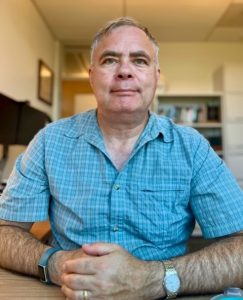
Program Director, Psychiatry Residency Research Program
I balance my time between my clinical work focusing on neuromodulation for mood disorders, supervision and mentoring of trainees, my role as Director of Mental Health Research at the Puget Sound VA, and basic neuroscience research in my laboratory. My role in residency training focuses on leading the Psychiatry Resident Research Track, where we hope to nurture the next generation of physician-scientists. I also enjoy teaching residents and students in the classroom and clinic.
I feel fortunate to have such a diverse career! It’s incredibly rewarding to help patients who have struggled with difficult mood and anxiety disorders, and my neuroscience research will hopefully open new doors to innovative treatment options for stress and substance use disorders.
Featured Faculty
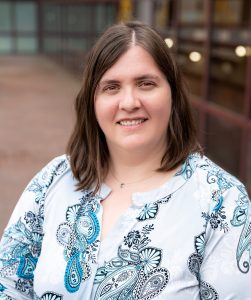
Work
I devote my clinical time to the Long-Term Care Unit (LTCC) at the Center for Behavioral Health and Learning (CBHL). In this role, I work with patients who require longer inpatient treatment as part of a multidisciplinary team. When not on inpatient service, I spend my time thinking about how complex neuropsychiatric presentations move through our health care systems, as part of my work with the Traumatic Brain Injury Behavioral Health (TBI BH) ECHO program and the Integrated Care Training programs.
Teach
Some of my favorite teaching topics include neuropsychiatry, specifically the challenges associated with TBI BH. I spend a significant amount of my educational time preparing our current workforce—providers practicing in the community—to help address these concerns. I also teach in the Integrated Care program, focusing more broadly on psychiatry in primary care. In addition, I support and supervise residents on rotation at the LTCC within CBHL. Many of the lessons learned from my teaching and clinical work provide insights that apply across different settings. Nothing brings me more joy than finding the bigger picture through all the details—and guiding others to see it, too.
Mentor
I have experience providing both formal project mentorship and informal “Hey… can I talk?” clarifying discussions. I am always happy to do either—or both—depending on the need. My goal is always to provide space and help problem-solve when asked and where I can. There is a lot of life that happens in and out of residency, and people are never just one thing. While I can talk about many things, some of my favorite themes include: “Should I do a fellowship?”, “What is it like to practice/train in another state?”, “Families are hard,” “What about this award/conference/project?” and “Current hobbies/food obsessions/seasonal sports.”
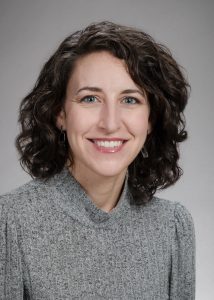
Work
I am a psychiatrist and palliative care provider at Harborview Medical Center (HMC). I rotate between the inpatient psychiatry and palliative care consult services. I also work in an quality improvement (QI) capacity, including leading QI education and mentorship for residents at HMC. I work at HMC because of our mission and incredible interprofessional teamwork. At HMC, I get to blend and practice all of my interests while serving patients and directly shaping trainees’ education.
Teach
I get to work with and supervise medical students and junior residents on a daily basis. There is nothing more rewarding than watching them build therapeutic alliances with patients and witness the hard work of recovery first-hand! While I am an endless nerd on topics like narrative medicine and humanism in healthcare, I most specifically like helping trainees develop complex communication skills regarding serious mental and medical illness. My goal is always to both teach and model working with patients and their supports in effective, person-centered ways.
Mentor
I provide mentorship in a variety of different roles ranging from my involvement with the Community Psychiatry pathway/interest group to “The Leadership in Medicine” elective I direct. No matter the context, however, I try to always highlight how patients are our truest teachers and guides.
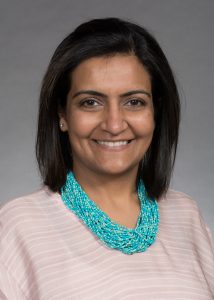
Work
I currently work as a consulting psychiatrist for the Behavioral Health Intervention Program (BHIP) and the PAL for Moms line, which is a perinatal psychiatry consult line for Washington State providers. I am also the director of the fulltime Integrated Care Fellowship and associate director for the Community-Based Integrated Care Fellowship, leading online didactics. I am very passionate about and excited to work on improving access to mental health and reducing the stigma around mental health through these integrated care education programs.
Teach
I see teaching as a two-way street in which both sides learn and get a better understanding about the topic at their respective level. Teaching also helps me to be a better clinician. I am interested in teaching in clinical settings where residents learn and apply their knowledge in real time. I encourage learners to collaborate and learn how to work in teams with people from different specialties and backgrounds as in my opinion it enriches the learning experience.
Mentor
Mentors can play a great role in shaping a trainee’s career and providing that extra support and guidance. As a mentor my goal is to be available and to support trainees in their career path. As the lead for the Integrated Care Pathway for residents, I enjoy teaching about the Collaborative Care Model to trainees at all levels of training, and I am constantly working on improving their learning experience. UW residents are very thoughtful, hardworking and engaged, which makes mentoring even more rewarding and fun.